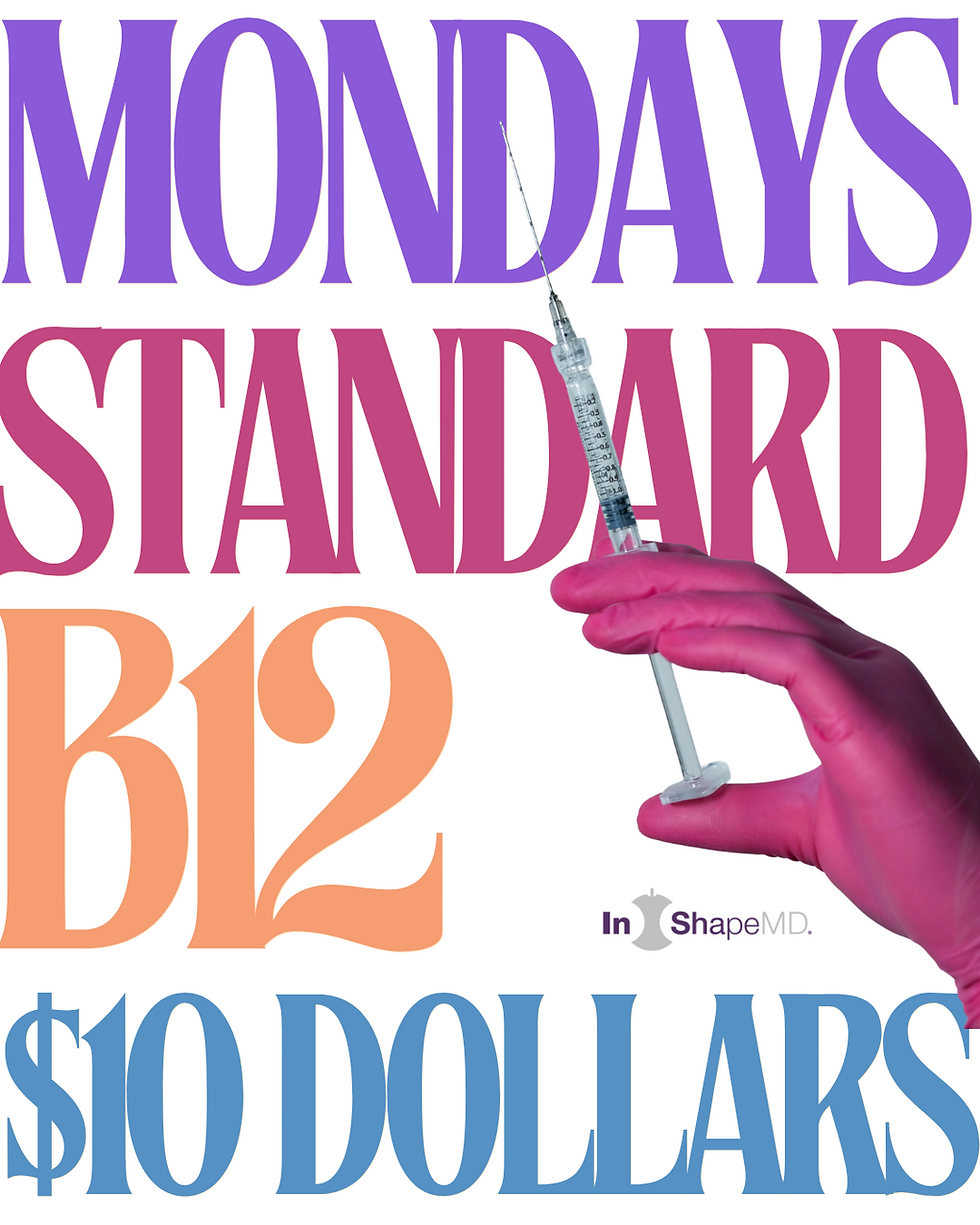Weight Loss Drug Zepbound May Help Sleep Apnea...
- InShapeMD

- May 6, 2024
- 4 min read
Could Zepbound help your breathing?
Medications like semaglutide (the main active ingredient in Ozempic and Wegovy) and tirzepatide (the main active ingredient in Zepbound and Mounjaro) have been rising in popularity for helping people with obesity lose a significant amount of weight. Researchers continue to find secondary benefits of going on these drugs. Now, new research on the weight loss drug Zepbound, from drugmaker Eli Lilly, finds that the medication may help those with sleep apnea, a disorder where breathing stops and restarts multiple times throughout sleep.
The U.S. Food and Drug Administration (FDA) approved Zepbound for the treatment of obesity in November 2023. Some prescribe the weekly injection off-label to those with sleep apnea, driving Eli Lilly to test the drug for obstructive sleep apnea back in June 2022. Over 400 participants were enrolled in the trial.

In their preliminary findings, researchers found that adult patients with obesity and obstructive sleep apnea treated with Zepbound for a year saw improvement in their sleep apnea compared to adults who did not receive the drug. After a year, those with moderate-to-severe obstructive sleep apnea who were taking the medication and not using PAP therapy (a machine that will pump pressurized air into a person’s airway to keep it open and prevent breathing problems while they sleep) saw a reduction of 27.4 events per hour, compared with a reduction of 4.8 events per hour in the participants who got the placebo.
Researchers then went one step further to see how the use of Zepbound may impact those who were already using the gold standard for sleep apnea treatment, PAP therapy. They found that people who used or planned to use PAP therapy and took the drug saw a slightly larger reduction in the number of events they had while they were sleeping. At 52 weeks, those who took the drug saw an average reduction of 30.4 events per hour compared with an average reduction of six events per hour in people who got a placebo.
Based on results from trials in people with sleep apnea, Eli Lilly said it plans to submit the material to the FDA to potentially expand the use of Zepbound to those with the condition. Note that the results of this study have yet to be peer-reviewed or published, but the drug maker has noted that these findings will be presented at a meeting of the American Diabetes Association in June.
Sleep apnea is a disorder where the throat closes when we fall asleep, causing difficulty breathing and lower oxygen levels, explains Abhay Sharma, M.D., sleep physician leading the University of South Florida’s ENT Sleep and Snoring Center. People with untreated sleep apnea repeatedly stop breathing during their sleep, sometimes hundreds of times during the night, and often for a minute or longer, adds Chris Allen, M.D., board-certified sleep medicine physician and sleep science advisor at Aeroflow Sleep. “This causes a significant disturbance in sleep quality and can have profound impacts on our health,” says Dr. Sharma.
Weight plays an important role in the development of sleep apnea, says Dr. Sharma. “Though it is not the only important factor, increased weight predisposes people to sleep apnea.” Therefore, it makes sense that weight loss drugs such as Zepbound may improve these factors by supercharging the weight loss process, notes Dr. Sharma.
Therefore, tirzepatide’s ability to significantly aid in weight loss can play a critical role in reducing one of the primary causes of sleep apnea. As of now, the weight loss aspect of the drug appears to be the main contributing factor in reducing sleep apnea side effects. “By mitigating one risk factor, Tirzepatide not only improves sleep quality but potentially reduces the risk of cardiovascular diseases and type 2 diabetes, which are often comorbid with obesity and sleep apnea,” explains Dr. Allen.
These findings confirm that a drug that effectively contributes to weight loss may also be used for treating sleep apnea, says Dr. Sharma. “This is substantial because it provides another option for people struggling to treat their sleep apnea because 40 to 50% of people are unable to use the gold standard for treatment of sleep apnea: CPAP.” One of these studies specifically enrolled patients who could not use CPAP and therefore provides an important addition to treatment, Dr. Sharma explains.
So can all semaglutide and tirzepatide drugs (like Ozempic, Wegovy, and Mounjaro) help with sleep apnea? Dr. Sharma says yes. “Though there could be unique effects of some of these drugs on sleep apnea, the most important reason for improvement in sleep apnea severity is the amount of weight loss,” he explains. However, the efficacy can vary based on the specific drug’s effect on weight loss, dosing, and the individual’s response to the treatment, notes Dr. Allen.
The bottom line - Zepbound May Help With Sleep Apnea
As access to weight loss drugs like Zepbound that activate both GIP (glucose-dependent insulinotropic polypeptide) and GLP-1 (glucagon-like peptide-1) hormone receptors increase, we will see improvements in our ability to treat sleep apnea, says Dr. Sharma. “It is important to realize these drugs will not cure all sleep apnea. Instead, they will provide an adjunct to treating patients who are unable to use CPAP.”
.jpg)








Comments